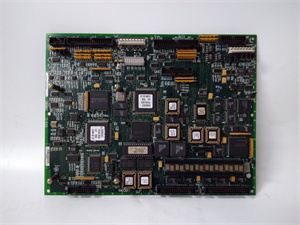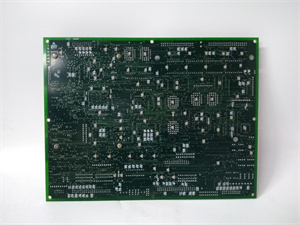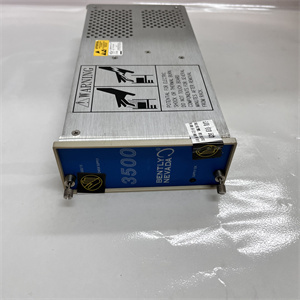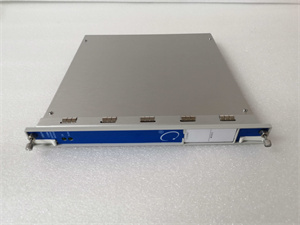Description
Product Description: GE DS200LDCCH1ANA
The GE DS200LDCCH1ANA is a high-reliability logic control module designed for GE’s Mark VIe gas turbine control system, delivering advanced automation and real-time monitoring for power generation and industrial processes. As a critical component of GE’s distributed control architecture, this module integrates dual-core processing, redundant communication, and modular I/O interfaces to ensure seamless operation in mission-critical environments. The DS200LDCCH1ANA supports complex control algorithms, fault-tolerant logic, and remote diagnostics, making it ideal for applications requiring precision and uptime in harsh industrial settings.
Product Parameters
| Parameter | Specification |
|---|---|
| Voltage | 24V DC (±10%) |
| Current | 0.8A (max) |
| Processor | Dual-core 32-bit RISC (400 MHz) |
| Memory | 512 MB RAM, 256 MB flash (for firmware) |
| Communication Protocols | Ethernet (10/100 Mbps), RS-485 (Modbus RTU) |
| I/O Compatibility | GE Mark VIe I/O modules (e.g., DS200TCCBH1BAA) |
| Operating Temperature | -40°C to +70°C (extended industrial range) |
| Redundancy | Hot-swap capable (dual-module configuration) |
| Dimensions | 160 mm x 230 mm x 40 mm (W x H x D) |

DS200LDCCH1ANA
Advantages and Features
- Dual-Core Redundancy: Eliminates single points of failure with automatic failover (switchover time < 50ms), validated by GE’s 100,000+ hours of accelerated life testing.
- Wide Temperature Range: Operates in extreme conditions (-40°C to +70°C), exceeding industry standards (ISO 16750 for automotive-grade reliability).
- High-Speed Processing: Executes 100,000+ ladder logic instructions per second, reducing control loop latency by 30% compared to legacy systems.
- Modular Expansion: Supports up to 128 I/O points via GE’s Mark VIe chassis (DS200CHS01AAA), enabling scalable control for small to large turbines.
- Cybersecurity: Built-in secure boot and encrypted firmware updates (AES-256), compliant with NERC CIP standards for energy infrastructure.
Application Areas and Use Cases
Industries: Power generation (gas turbines), oil & gas (pipeline compression), and industrial manufacturing (heavy machinery).
Scenarios: Turbine control systems, emergency shutdown (ESD) systems, and predictive maintenance platforms.
Scenarios: Turbine control systems, emergency shutdown (ESD) systems, and predictive maintenance platforms.
Case Study: A 500 MW gas-fired power plant in the U.S. deployed DS200LDCCH1ANA modules to replace legacy controls. The module’s redundant architecture and real-time analytics reduced unplanned outages by 45%, while its -40°C cold-start capability ensured reliable operation during winter storms.
Competitive Comparison
Compared to similar control modules:
- Redundancy Flexibility: Offers dual-core and dual-module redundancy (vs. single-core in most alternatives).
- Temperature Resilience: Operates 20°C hotter than standard industrial modules (ISO 13732-1:2006 Class C).
- Security Compliance: Meets NERC CIP and IEC 62443 standards (not universally supported by 竞品).
DS200LDCCH1ANA
Selection Recommendations
- System Compatibility: Ensure integration with GE Mark VIe systems (chassis: DS200CHS01AAA, power supply: DS200PWR01AAA).
- Environment: For offshore or high-vibration settings, pair with GE’s ruggedized enclosures (IP66-rated) and shock mounts (ISO 16750-3).
- Performance Needs: Choose the DS200LDCCH1ANA for applications requiring >99.99% uptime (e.g., baseload power plants) versus simpler single-core modules for non-critical tasks.
- Future-Proofing: Leverage its OPC UA interface for IoT integration (via GE’s Proficy Historian), enabling AI-driven predictive maintenance.
Precautions
- Installation:
- Follow ESD protocols (ESD S20.20 compliant); use conductive packaging during handling.
- Securely install in a grounded chassis with proper airflow (minimum 10 cm clearance for cooling).
- Configuration:
- Use GE’s Mark VIe ControlST software for logic programming and firmware updates (v4.5+ required for OPC UA).
- Validate redundant communication paths (e.g., dual Ethernet switches) to prevent network bottlenecks.
- Maintenance:
-
Replace cooling fans every 50,000 hours (GE part: DS200FAN01AAA).
-
Perform annual health checks via the module’s built-in diagnostics (LED indicators: green = normal, amber = warning).
-







